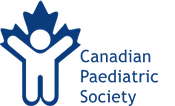Ease the season of sneezing and snivelling with cold-fighting tips
OTTAWA - Winter is prime time for colds and though it may be tempting to treat your child’s stuffy nose and sore throat with over-the-counter drugs (OTCs) they should not be given to children under 6. The only exceptions are drugs used to treat fever (such as ibuprofen and acetaminophen).
But there are lots of other things parents can do to reduce the number of colds and provide relief for children who are sick— without using OTCs.
“Colds are best treated with rest and plenty of fluids and nutritious meals- not by using ‘over-the-counter’ drugs,” says Dr. Glen Ward, chair of the Canadian Paediatric Society’s Public Education Subcommittee and a general paediatrician in British Columbia.
Talk to a doctor or pharmacist before giving over-the-counter drugs to children under 12, or to anyone taking other medicines or with a chronic illness. Read label instructions carefully and do not give more than is recommended.
Children under the age of 2 can suffer from as many as eight to 10 colds a year.
“Young children are more prone to getting colds than older children and adults because their bodies are encountering these viruses for the first time,” says Dr. Ward. “This is a normal stage in the development of a healthy immune system.”
Colds spread easily among children because they often touch their noses, eyes and put objects in their mouths during play. They also have close contact with parents, caregivers and other children.
To prevent the spread of colds:
- Wash hands frequently —and make sure children wash their hands as well— especially after coughing, sneezing, wiping a nose and being in contact with someone who has a cold.
- Teach children to wipe their noses with a tissue as well as cover their mouths with a tissue when they sneeze or cough. Used tissues should be thrown in the garbage right away.
- Make sure your child has received all of the recommended immunizations. While they won’t prevent colds, they will help prevent some of the complications, such as bacterial infections of the ears or lungs. Influenza vaccine protects against influenza but not against other respiratory viruses.
- Wash toys that young children place in their mouths.
“Hand washing is the best way to prevent a cold,” says Dr. Ward.
Typical cold symptoms include: runny nose, nasal congestion, sneezing, coughing and a mild sore throat. Some children may not want to eat, have a mild fever (a rectal temperature slightly above 38°C) and will have a headache or seem more tired than usual. Colds normally last one week, but can hang on for two.
Parents should consult a doctor if a child’s cold seems to be developing into a more serious infection. Call a doctor right away if the child is having trouble breathing, is vomiting because of coughing and choking, or has bluish lips. Yellow and green discharge from the nose that lasts more than 10 to 14 days, pus draining from ears or eyes, and fever lasting more than 72 hours are also signs a child should see a doctor.
For more information about the common cold, fever and temperature-taking and guidelines about over-the-counter drugs, visit www.caringforkids.cps.ca.
About the Canadian Paediatric Society
The Canadian Paediatric Society is a national advocacy association that promotes the health needs of children and youth. Founded in 1922, the CPS represents more than 3,300 paediatricians, paediatric subspecialists and other child health professionals across Canada.
Last updated: Jan 21, 2013
